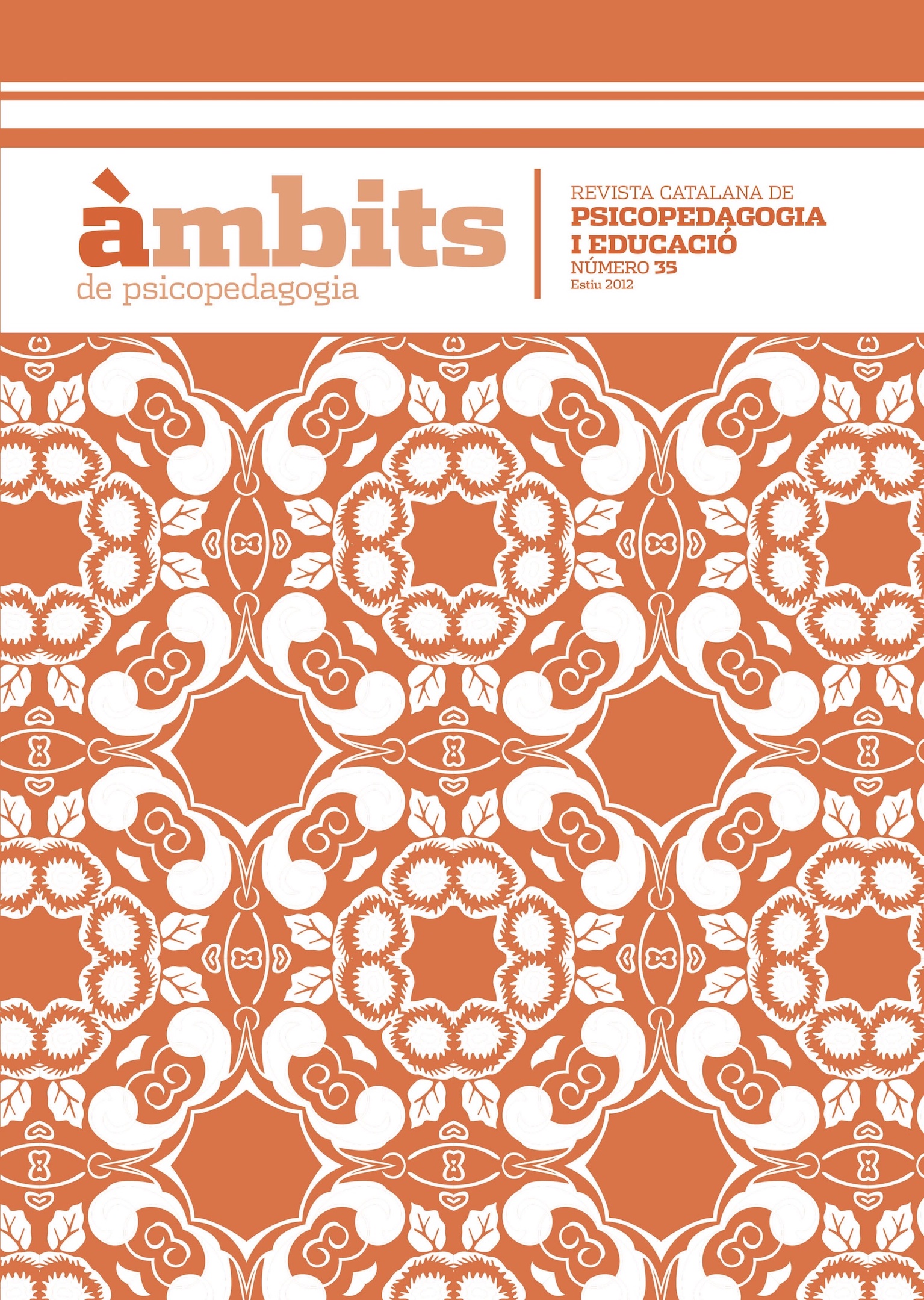The USEE of the Maragall Poet Institute
Abstract
Specialeducation support units (USEE) werw created as an educational resource desined for students with special educational needs arising from intellectual disabilities in mainstream school. The USEE of the Secondary School Poeta Maragall was born in the school year 2005-06, and it is one of the first put into operation in Barcelona city. It attends between 5 to 10 students with intellectual disabilities, severe, medium or mild, enrolled in the secondary education. Its organization and operation are focused on providing the best educational inclusion possible for students with disabilities, for whom we adapt the curriculum according their specific needs, trying all the time to mingle with the regular students space and instrutional time. At the stage of secundary education the full inclusion oh this group of students is more difficult because of the large difference in the ability to assimilate and abstract the conceptual content of ESO's pupils. For this reason, professionals assigned to the USEE (two special educational teachers and a teacheer assistant, until the academic year 2011-12), divide their duties between teaching in the classroom USEE, which prioritizes a highly functional methodology, and motivational and useful in their daily live contents; and direct support in regular classroom, in-class groups where are attached these students.
In this way, the possibility, that disabled students share their school time with other regular students means to them an opportunity to experience similar experiences with children aged like them. Although everyone is different, there are always common elements that can be shared with them (music, hobbis...). On the other hand, for ordinary students, they have the opportunity to interact with disabled peers and they can help them to empathize with those who have more difficulties, either because they find it hard to learn, or because they have an illness or handicap, etc., and makes them aware that they are one more, and that differences should be accepted in a natural way and with fellowship. After seven years of the USEE existence in this secondary school, we can say that the impact of inclusive education of disabled students is highly positive for both, and specially for regular students. There is still much to do, but with the enthusiasm and effort of professionals, the educational community willinsness and the necessary allocation of sufficient resources by the government, quality public education and truly inclusive, is possible.
Downloads
Published
Issue
Section
License
The authors maintain their copyright and give the right to the first publication of the work to the journal, registered under a Creative Commons Attribution-Non Commercial-NoDerivs license. This license allows others to download the works and to share them with others as long as they credit the author, but it does not allow for any kind of modification or commercial use.















